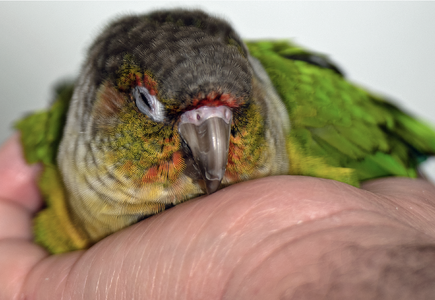- Joined
- Sep 10, 2003
- Messages
- 9,897
Bird flu is very dangerous to cats. Cats infected with H5 bird flu can develop severe illness that may including neurologic signs, respiratory signs or liver disease that can rapidly progress to death.
The Wild Felid Advocacy Center in Washington State lost 20 big cats, half their population, to bird flu over the past few weeks. They don't yet know how it was transmitted, whether from infected raw meat diets or bird poop in the enclosures or ....
This disease has the potential to become epidemic in feral cat populations which means that people who let their cats outside should reconsider doing so until a way is found to treat/prevent the disease. Death can occur as quickly as 24 hrs.
Talk to your vet or search the news about the incidence of infected cats in your area. Those who are thinking about rescuing/adopting a cat should reconsider bringing a rescue into the house if there are already cats in residence. If you know you have feral or outdoor pet cats in your area or on your property and you have indoor cats, be cautious. If there are free-roaming cats coming onto your property and/or you see lots of bird poop, you might consider sterilizing your shoes before entering your home at least until the transmission routes of the virus are identified.
The Wild Felid Advocacy Center in Washington State lost 20 big cats, half their population, to bird flu over the past few weeks. They don't yet know how it was transmitted, whether from infected raw meat diets or bird poop in the enclosures or ....
This disease has the potential to become epidemic in feral cat populations which means that people who let their cats outside should reconsider doing so until a way is found to treat/prevent the disease. Death can occur as quickly as 24 hrs.
Talk to your vet or search the news about the incidence of infected cats in your area. Those who are thinking about rescuing/adopting a cat should reconsider bringing a rescue into the house if there are already cats in residence. If you know you have feral or outdoor pet cats in your area or on your property and you have indoor cats, be cautious. If there are free-roaming cats coming onto your property and/or you see lots of bird poop, you might consider sterilizing your shoes before entering your home at least until the transmission routes of the virus are identified.
Last edited:












300x240.png)